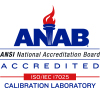 Posted on
Posted on 
Targeted drug delivery systems, such as nanoparticles and liposomes, offer precise control over drug release and distribution within the body. Integrated with data logging technology, these delivery platforms can provide real-time monitoring of drug concentrations, pharmacokinetics, and therapeutic responses in vivo. By leveraging data loggers to track key parameters, researchers and clinicians can optimize drug dosing regimens, enhance therapeutic efficacy, and minimize adverse effects, ultimately improving patient outcomes.
Optimizing Oral Drug Delivery with Data Insights:
Innovations in oral drug delivery technologies, including oral films, microneedle patches, and nanoparticle formulations, hold promise for improving drug bioavailability and patient compliance. Data logging technology plays a vital role in optimizing these delivery systems by monitoring parameters such as drug release kinetics, gastrointestinal transit times, and mucosal absorption rates. By collecting and analyzing data insights, researchers can fine-tune oral drug delivery formulations, ensuring optimal performance and efficacy in clinical settings.
Personalized Medicine and Remote Patient Monitoring:
Personalized medicine approaches rely on tailoring treatments to individual patient characteristics and disease profiles. Data logging technology enables remote patient monitoring, allowing healthcare providers to track patient adherence, drug response, and treatment outcomes in real-time. By integrating data loggers into wearable drug delivery devices and implantable systems, clinicians can gather continuous physiological data, optimize therapy adjustments, and personalize treatment plans to meet the unique needs of each patient.
Regulatory Compliance and Data Integrity:
As drug delivery technologies continue to advance, regulatory compliance and data integrity remain paramount. Data logging technology plays a crucial role in ensuring compliance with regulatory requirements by documenting critical parameters, validating process controls, and maintaining audit trails throughout the drug development and manufacturing lifecycle. By employing data loggers with secure data storage and transmission capabilities, life science companies can demonstrate adherence to regulatory standards and mitigate risks associated with data integrity breaches.
The integration of data logging technology with innovative drug delivery systems is revolutionizing healthcare delivery in the life science industry. By harnessing the power of data insights, researchers and clinicians can optimize drug delivery strategies, personalize treatments, and improve patient outcomes. As advancements in drug delivery and data logging technology continue to evolve, the future holds immense promise for transforming the treatment of diseases and enhancing the quality of care for patients worldwide.






